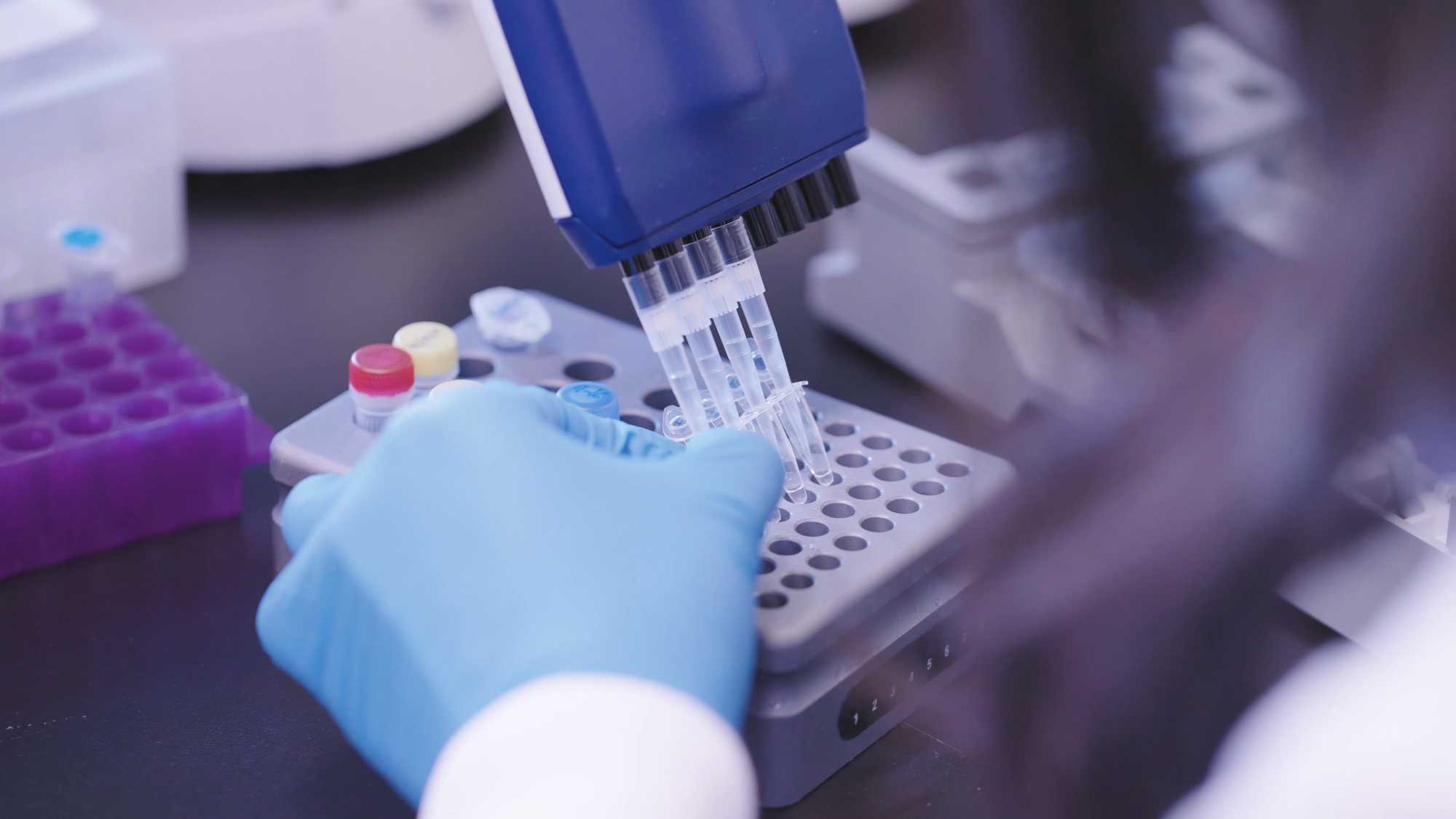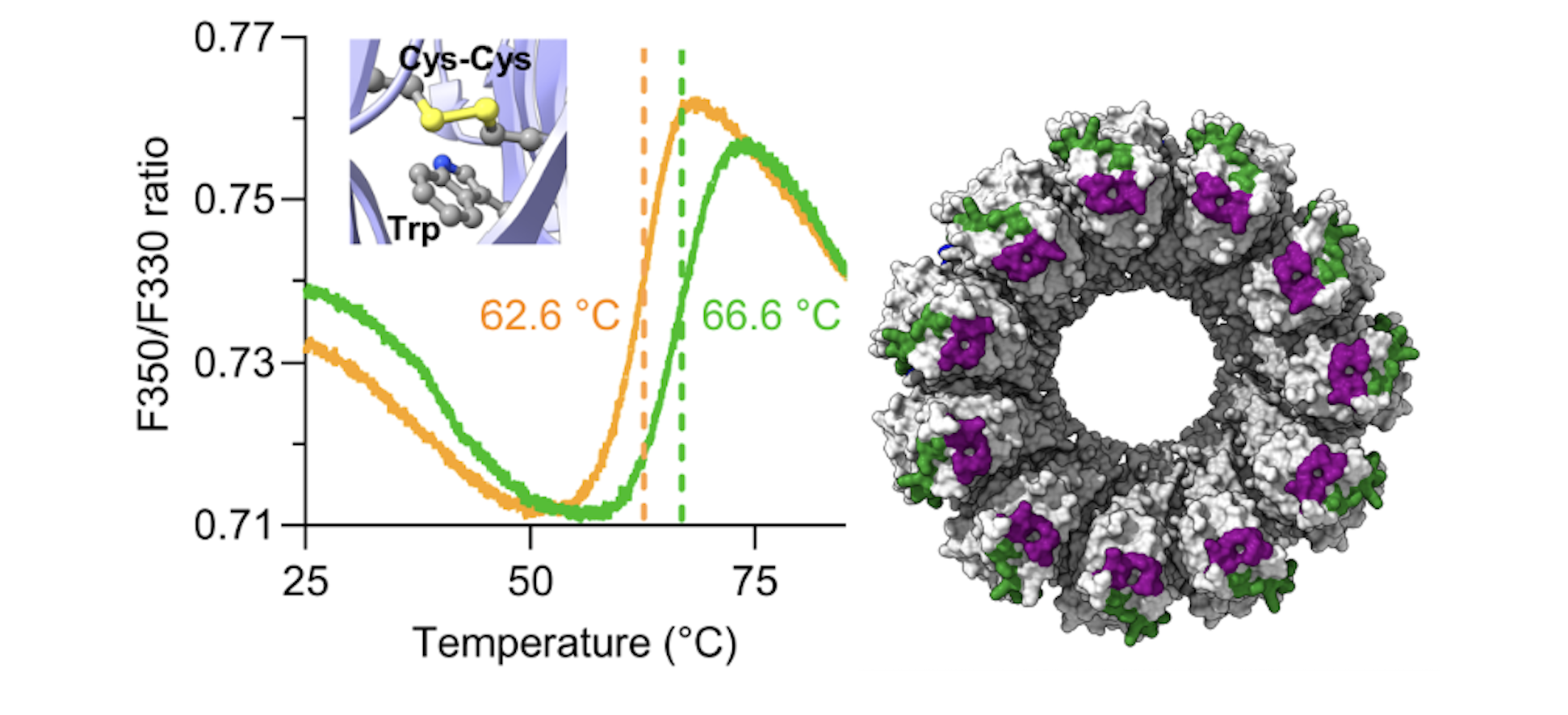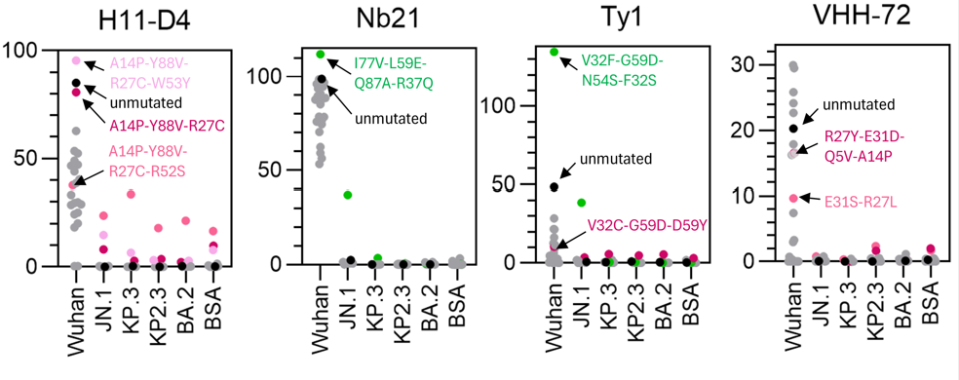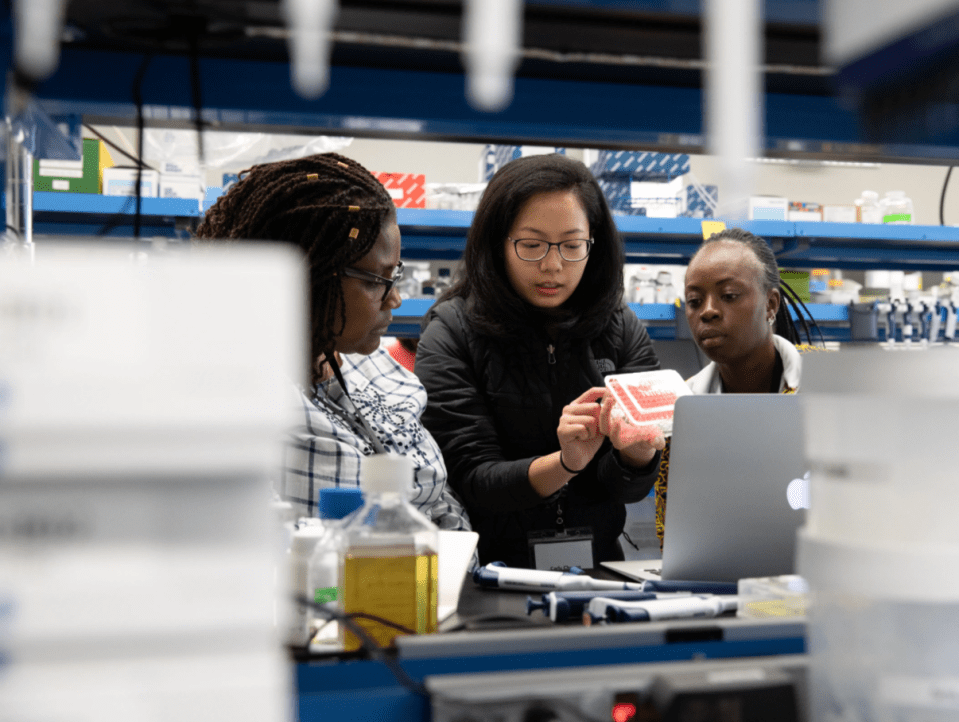
Protein Science
Biochemical and biophysical methods to enable host, virus, and immune molecule discoveries
The Protein Science team develops and applies methods for producing, purifying, and characterizing proteins to support a wide range of Biohub goals. We combine high-throughput workflows, detailed biophysical analyses, and AI-guided experimental design to accelerate discovery across diverse projects. From collaborative tool-building to functional validation of cutting-edge designs, our work sits at the interface of computation and the bench.
Expression Systems
 We produce a broad range of proteins — from AI-designed antibodies to novel viral antigens — using mammalian, insect, and bacterial expression systems. Our workflows support both large-scale production for animal studies and small-scale expression for high-throughput screening and model validation. We’re also exploring cell-free expression as a rapid tool for early-stage screening.
We produce a broad range of proteins — from AI-designed antibodies to novel viral antigens — using mammalian, insect, and bacterial expression systems. Our workflows support both large-scale production for animal studies and small-scale expression for high-throughput screening and model validation. We’re also exploring cell-free expression as a rapid tool for early-stage screening.
Biochemical and biophysical characterization
 We apply a range of techniques to characterize proteins and protein–protein complexes. Our toolkit includes SEC-MALS for oligomeric state, multiplexed ELISA for serological specificity, HDX-MS and SAXS for dynamics and interface mapping, and BLI for binding kinetics. We also use DSF to assess protein thermostability and are actively developing high-throughput methods for probing DNA-protein interactions.
We apply a range of techniques to characterize proteins and protein–protein complexes. Our toolkit includes SEC-MALS for oligomeric state, multiplexed ELISA for serological specificity, HDX-MS and SAXS for dynamics and interface mapping, and BLI for binding kinetics. We also use DSF to assess protein thermostability and are actively developing high-throughput methods for probing DNA-protein interactions.
AI-guided experimental design
 We’re excited by the potential of AI to generate testable hypotheses and accelerate discovery. We’ve validated protein language models for design using high-throughput purification workflows and worked with AI agents to both constrain experimental space and evaluate designed proteins. Leveraging our high-performance computing infrastructure, we run parallelized protein modeling with tools like ESM and AlphaFold. We’re especially eager to collaborate with ML/AI experts to explore models of protein function and specificity.
We’re excited by the potential of AI to generate testable hypotheses and accelerate discovery. We’ve validated protein language models for design using high-throughput purification workflows and worked with AI agents to both constrain experimental space and evaluate designed proteins. Leveraging our high-performance computing infrastructure, we run parallelized protein modeling with tools like ESM and AlphaFold. We’re especially eager to collaborate with ML/AI experts to explore models of protein function and specificity.
Collaboration
 We’re a hyper-collaborative group, with much of our success rooted in close partnerships with students, postdocs, and staff scientists. We’ve trained visiting researchers, contributed to experiments in collaborator labs, and embraced a wide range of collaborative models. If you’re interested in working together, we’d love to hear from you!
We’re a hyper-collaborative group, with much of our success rooted in close partnerships with students, postdocs, and staff scientists. We’ve trained visiting researchers, contributed to experiments in collaborator labs, and embraced a wide range of collaborative models. If you’re interested in working together, we’d love to hear from you!


